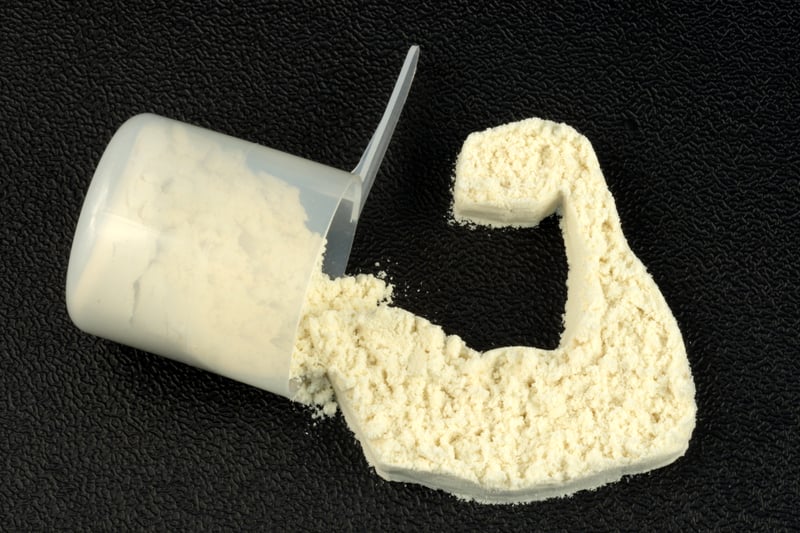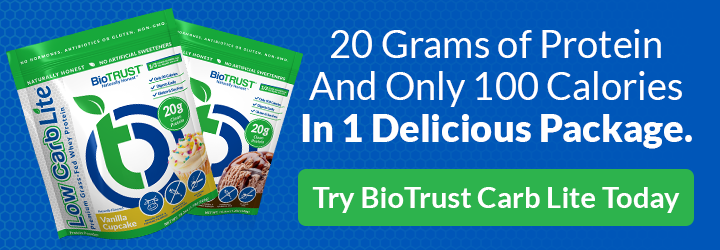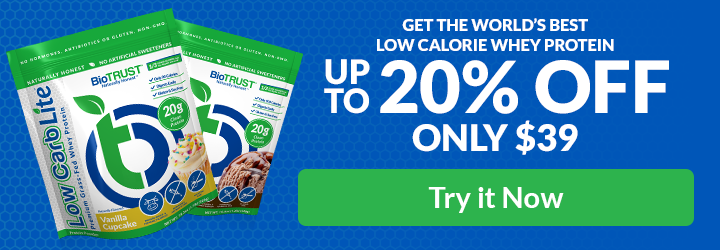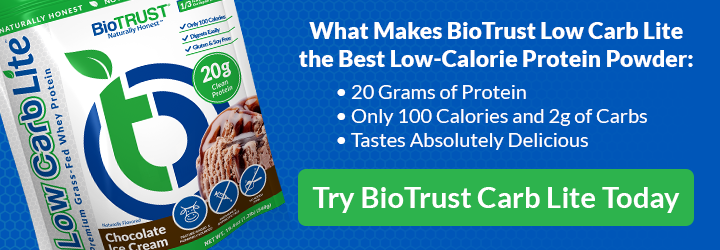Whey Protein: The Top 8 Most Frequently Asked Questions

Whey protein is a popular choice for folks who want to consume more protein quickly and easily. Along with casein, it’s one of the main proteins found in dairy products and is a natural byproduct of cheese and yogurt making. It’s also rich in essential amino acids, which are building blocks for many processes within the body, including building muscle.
Whey is a complete protein that provides all the essential amino acids. It’s also easily and quickly digestible compared to other forms of protein, including casein, which digests slowly. 1 Whey protein is typically found in powdered form that can then be stirred into soft foods like oatmeal or yogurt or blended with water, ice, and fruit to create a creamy, protein-rich smoothie.
It’s most well-known by fitness enthusiasts trying to boost athletic performance and increase muscle growth. But it’s often also used by folks looking for improved health or weight loss.
In today’s article about whey protein, we address the following most popular questions:
- What Does Whey Protein Do?
- How Much Whey Protein Should You Use a Day?
- When Should You Take Whey Protein?
- What is the Difference Between Isolate and Whey Protein Concentrate
- Is Whey Protein Dairy?
- Is Whey Protein Gluten-Free?
- Does Whey Protein Have Side Effects?
- Is Whey Protein Good For You?
What Does Whey Protein Do?
Whey protein is one of the most highly studied supplements due to its wide range of benefits. The most common reasons people consume whey protein include:
• Muscle growth: whether you’re a bodybuilder or someone who’s aging who wants to hold onto your muscle mass, changing your diet to consume more whey protein may help you gain or at least retain lean mass. This is due, in part, to whey’s high concentration of the amino acid leucine, which is one of the most growth-promoting aminos. 2, 3
• Malnutrition: whey protein may help people who have a hard time gaining or keeping on weight and muscle, especially those who are older or suffering from a disease such as HIV/AIDS.
• Improve satiety to promote weight loss: protein is the most satiating macro and may help people burn more calories while eating less. Studies have even demonstrated that participants who replaced other calories with whey protein and lifted weights were able to lose around eight pounds while gaining muscle mass. 4 Win-win!
• Cut food cravings: other research has found people who eat more protein (~25% of calories per day) have decreased food cravings by as much as 60%. What’s more, late-night snacking can be cut in half. 5
• Wound healing: whey protein has been shown in research to help those recovering from wounds or burns recover faster. 6
Whey protein isn’t just a quality protein. It also provides other important and beneficial nutrients like lactoferrin, beta-lactoglobulin, alpha-lactalbumin, and immunoglobulins. 7
As such a nutritious food and antioxidant, whey protein may also help lower blood pressure, stabilize blood sugar, and decrease stress and symptoms of depression. It may also help support the body’s ability to fight excess inflammation and infection, promote bone health, support gastrointestinal health, and more. 8, 9
How Much Whey Protein Should You Use a Day?
Typical usage instructions are for between one and two scoops—or around 25 to 50 grams— daily.
When Should You Take Whey Protein?
Whey protein can be consumed anytime throughout the day. That said, it’s often recommended within two hours after exercise, especially weight training, to help maximize muscle protein synthesis, which is needed for muscle repair and growth. Many people, though, find it more convenient to enjoy a high-protein smoothie for breakfast or an afternoon snack, regardless of when they workout.
Difference Between Isolate and Whey Protein
There are three main types of whey protein: concentrate, isolate, and hydrolysate. Due to their different processing methods, each has nutritional differences.
Liquid whey is first collected as a byproduct and then goes through other processing steps to increase the amount of protein. The liquid protein is simply dried after sufficient protein concentration is met to create whey protein concentrate. Concentrate is made up of around 80% protein, and the remaining powder is made up of carbohydrates and fats. This can vary significantly by brand, though, with lower-end concentrates containing a mere 30% protein and higher-quality products containing up to 90%.
To create isolate, additional steps are taken to remove most of the fat and carbohydrates, leaving a product that contains 90% or more protein.
The “most pure” form of whey protein is whey protein hydrolysate, a type of “predigested” whey protein. That is, it’s already partially gone through hydrolysis. Because it’s been predigested, it’s more easily absorbed. This form is most typically found in medical products and infant formulas due to its increased digestibility as well as its lower risk of allergens.
There isn’t necessarily a best form of whey protein as they all offer the benefits of whey. However, whey protein isolate and hydrolysate may be easier to digest and provide higher concentrations of protein.
Is Whey Protein Dairy?
Yes, whey protein is derived from milk and is a byproduct of cheese or yogurt making. Cheese is made by adding special enzymes to milk that’s been heated. In the most simplistic terms, these enzymes cause the milk to divide into a solid (casein) and a liquid (whey) substance. The whey is then cleaned and dried until it becomes a powder.
While it does depend on the brand and the quality, often, people who are lactose intolerant can use whey proteins without problems. Even folks who can’t fully digest lactose (the milk sugar found in milk) because they lack enough of the enzyme needed to digest it (lactase) can typically consume whey protein isolates or hydrolysates as there is so little (if any) lactose in the final powder. Even some whey concentrates have nearly all of the lactose removed.
If in doubt, however, read through the label or reach out to the manufacturer to see if there is any lactose in the final product. Or choose a whey protein isolate or the even more pure hydrolysate, which contains no lactose, carbs, or fat, over a whey protein concentrate.
Is Whey Protein Gluten-Free?
Many people choose to go gluten-free, even those who aren’t celiac. If that’s a concern for you, many whey protein products are free from gluten as whey does not include this plant protein. However, it’s always good to double-check the label as protein powders often have additional ingredients for added flavor, stabilizers, or preservatives. At times, gluten-containing ingredients are added.
In addition, protein powders may be made in facilities that also make foods that contain gluten, so there can be a risk of cross-contamination.
Especially important if you are celiac or gluten-sensitive, labeling requirements make it easy to see if the product you’re considering does contain any gluten (to under 20 parts per million). In addition, there are third-party organizations that also certify gluten-free products, such as the Gluten-Free Certification Organization (GFCO), which can be even more stringent, ensuring the product contains less than 10 parts per million.
As always, if you have any concerns or questions, you can always reach out to the manufacturer, who can let you know exactly what’s contained in the product.
Does Whey Protein Have Side Effects?
Whey protein is a food. While it should be avoided if you are allergic or intolerant of dairy foods, whey has a long safety record. That said, some lower-quality whey proteins can lead to gastrointestinal discomfort, including gas, loose stools, cramping, or nausea.
If you are taking antibiotics or other medications, check with your doctor first, as whey protein may interfere with the absorption of some drugs.
What about concerns about kidney damage or the risk of osteoporosis? They appear to be unwarranted. Whey protein appears to have no effect on healthy kidneys, even when large amounts are consumed. As well, protein has been shown to help promote bone health, protecting against osteoporosis. 10 – 13
Is Whey Protein Good For You?
For most people, the short answer is yes! Whey protein is a convenient, tasty way to increase quality protein in your diet. It’s easily digestible, absorbed, and used throughout the body to help build healthy cells. It’s especially important for people who enjoy an active lifestyle, especially those looking to maintain or gain lean muscle mass and strength while losing fat (i.e., improving body composition).
It’s also exceptionally easy to add to a healthy diet by adding it to smoothies, oatmeal, yogurt, and energy balls. It can also increase the amount of protein in pancakes and waffles, protein bars, or other baked goods. You can even add unflavored varieties to cream-based soups, gravies, sauces, or salad dressings to sneak some additional protein into your diet.








